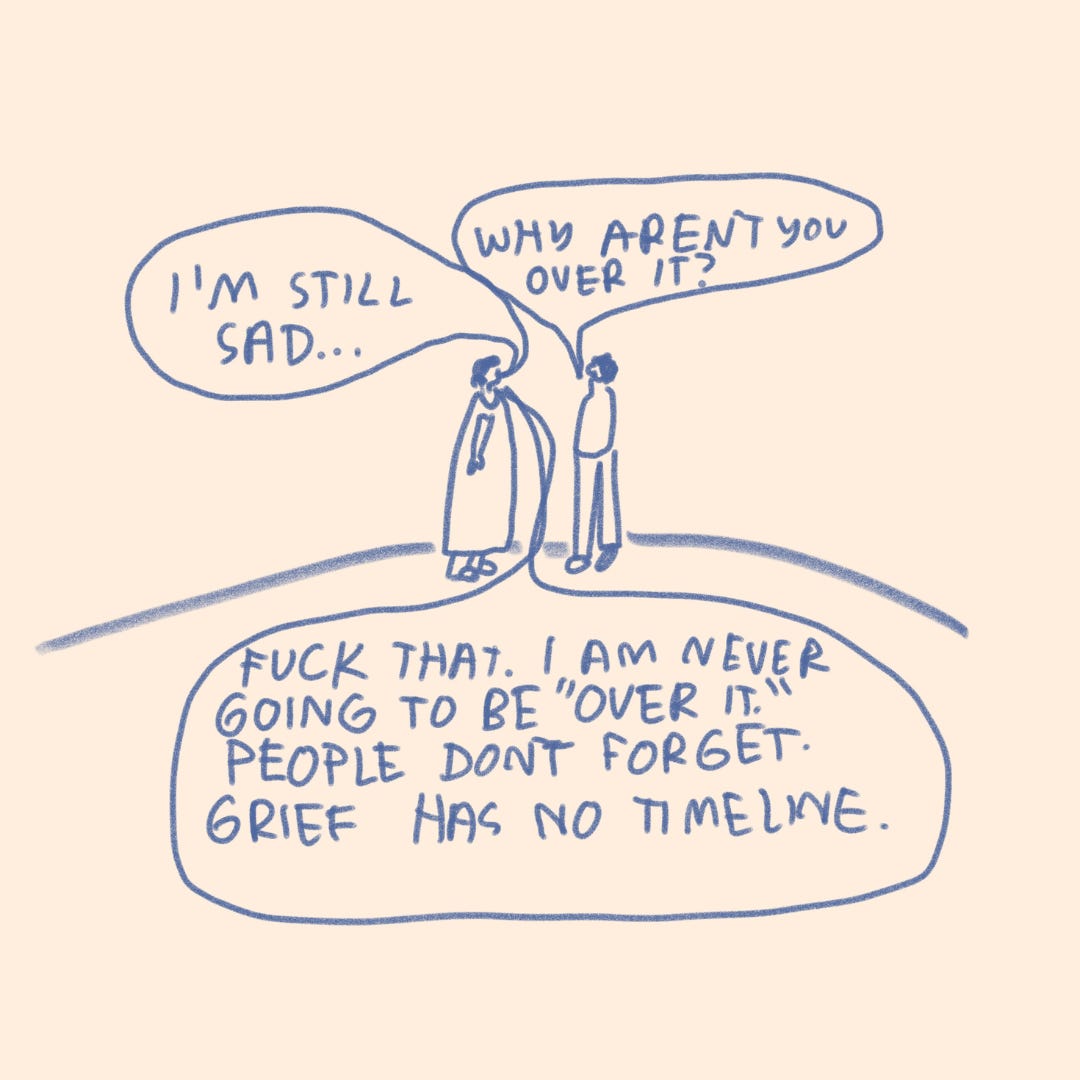Creating meaningful ways to remember
sitting with sadness, showing up for grief in it's many forms
If there was a way for grief to be less lonely, it was worth a try. If there was a space that was warm and thoughtfully made, not a stop-gap program but an evolving ecosystem, it was worth trying to build it.
At the beginning of this month, we launched a new journal, Sitting With Sadness, our collaboration with Maddie and Mar, and the follow-up to our be…
Keep reading with a 7-day free trial
Subscribe to BAD AT KEEPING SECRETS to keep reading this post and get 7 days of free access to the full post archives.




